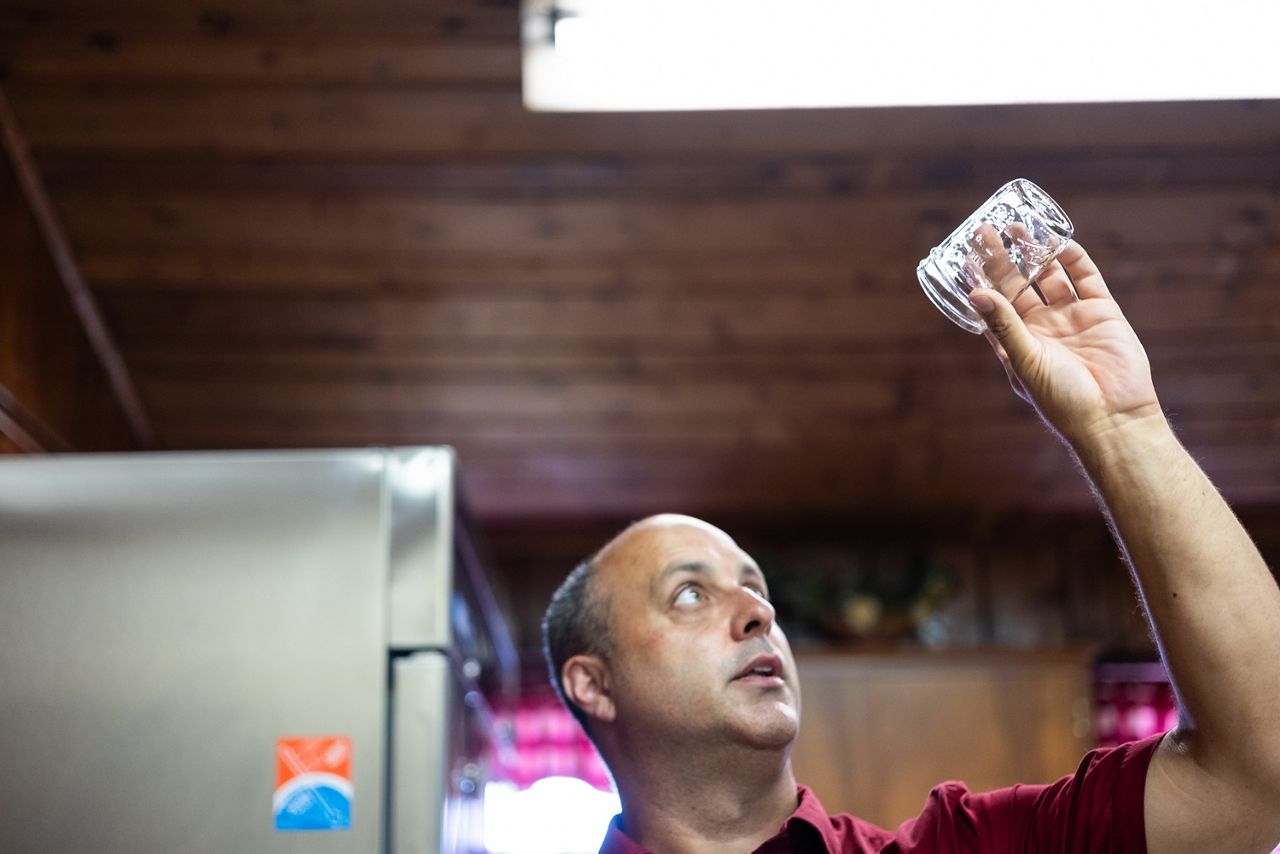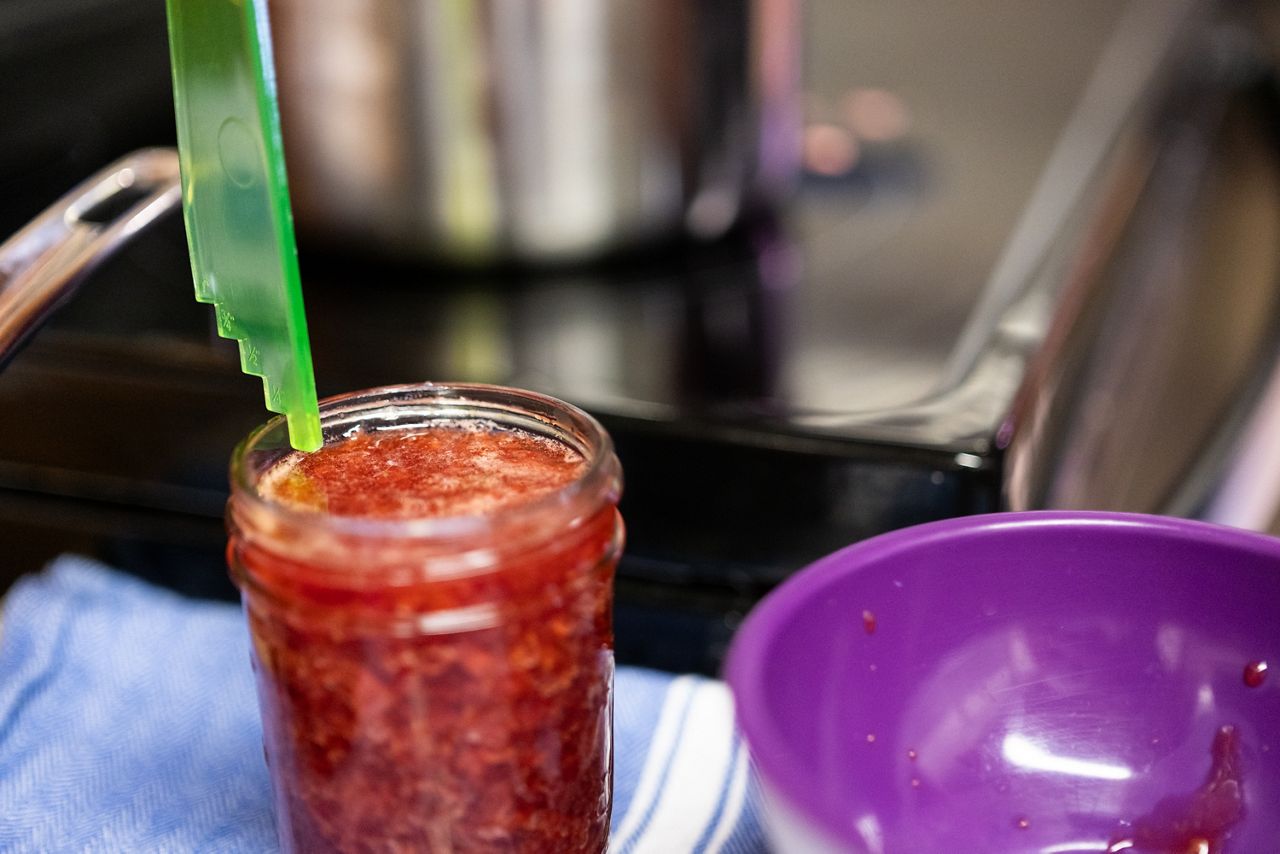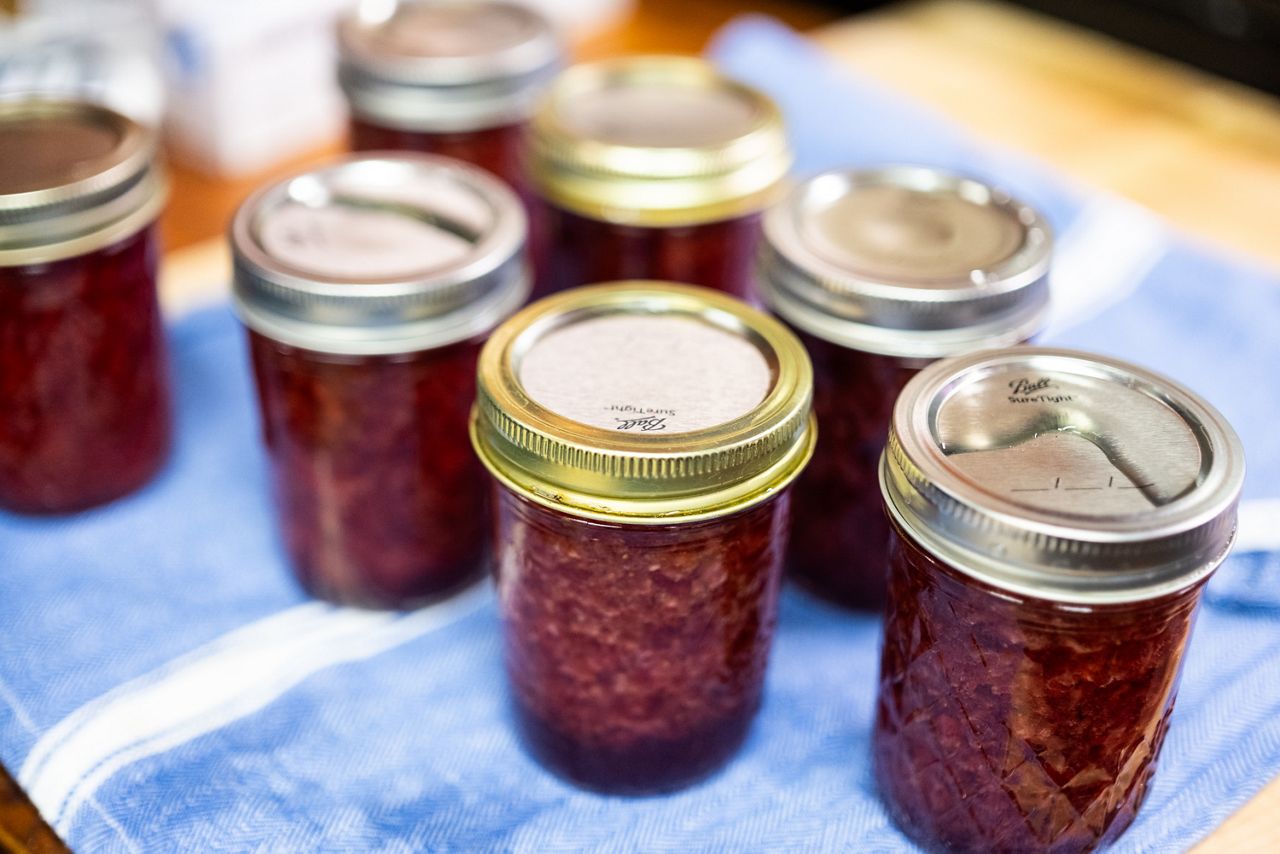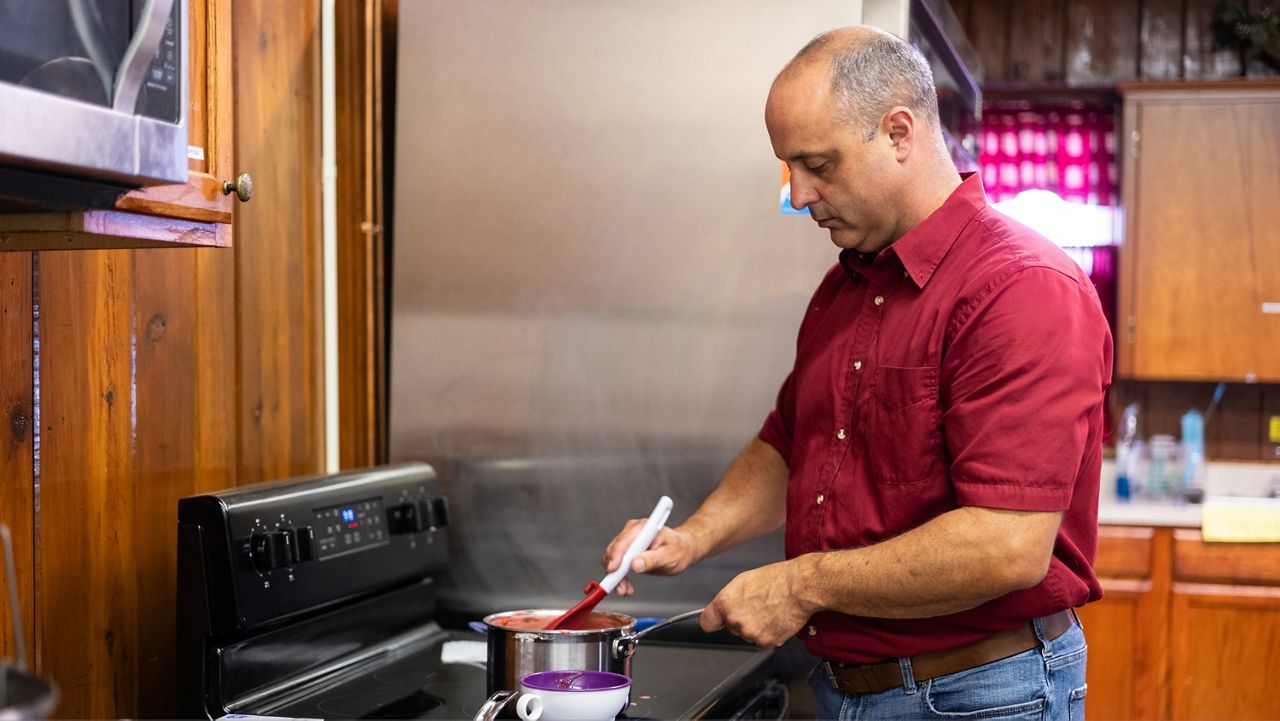Late summer is the time of year when tomatoes, peppers, herbs, strawberries and blueberries are in season, but some home gardeners can grow more than they use before some of their crops spoil.
People often turn to canning but Sam Leonard, a master food preserver, says there are some key steps to prevent bacteria from growing during the process.
“What we want to stay away from is, ‘Oh, this should be fine. That's how my grandmother did it.’ We want to give them good information that won’t make them sick,” Leonard said.
Leonard became a master food preserver with New York state in 2019 after two years of training through Cornell University.
“I have gardens all around my house and I don’t live on a farm. I live in a residential neighborhood and just decided that grass doesn’t do it for me,” he said.
He planted about 1,300 plants this year, and a lot of his yield will be preserved for him and his family. One of the most important things when researching how to preserve food is to trust only verified sources, he said.
Botulism is an illness caused by a bacterium that can occur in improperly canned foods. It impacts the body’s nervous system and happens most frequently with home canned vegetables.

“The big problem with botulism and bacteria is it’ll create spores and those spores are what really make you sick. They can survive in a sealed jar that has low oxygen and acidity is to their favor,” Leonard said.
While botulism is the worst-case scenario, improper canning can cause other bacteria to grow, too, which can make people sick.
“It’s really about getting people information where we can say if you follow these instructions, they’re tested safe, they did heat-penetration testing, they did a bunch of food safety testing as far as acidity and other things,” Leonard said.
While there are many groups on social media that offer a variety of ways to preserve food, Leonard said the most trusted source is the National Center for Food Preservation, which includes recipes and processes that have all been tested in a lab.
“If you follow what they say, it will be a safe product,” Leonard said.
For home gardeners interested in saving on food costs, Leonard said it can help reduce their grocery bills.
“Negating the cost of getting the canning equipment, there’s an upfront cost, but when canning at home, there can be a substantial cost savings,” Leonard said.
Purchasing locally produced fruits and vegetables in bulk can also help reduce food costs for those who don’t have their own gardens, Leonard said. For example, he said he can get 50 pounds of tomatoes for $20 from a local farmer.
Elad Tako, an associate professor of food science at Cornell University, said another benefit of preserving food is knowing exactly what is in it. In recent years, consumers have become more aware of nanomaterials like titanium dioxide in their food and its packaging, Tako said.
“As consumers, we really don’t know what is the amount of these materials that are found in packaging primarily and is it leaking into our food? If yes, is it dangerous?” Tako said.
Additionally, for home gardeners or those purchasing from local farmers, they know what pesticides are being used.
“Knowing where your food is coming from, to have a direct conversation with a farmer, knowing the growing conditions, it adds a lot of value by knowing where your food is coming from and, of course, a lot of value to the community relationship with that farmer,” Tako said.
While consuming fresh fruits and vegetables is the preferred way to eat them, Tako said preserving is a good alternative.

“Canning still keeps the nutritional value of many fruits and vegetables, including those elements like vitamins and minerals and it’s very important to keep it as part of our diet,” he said.




